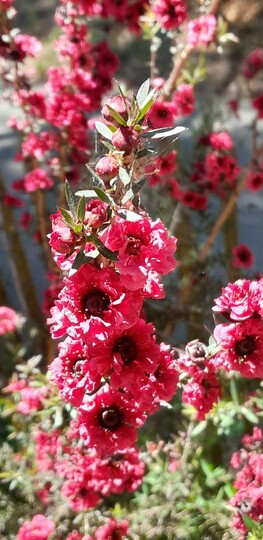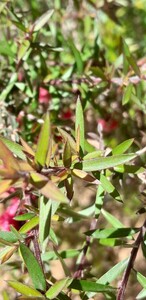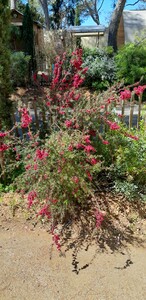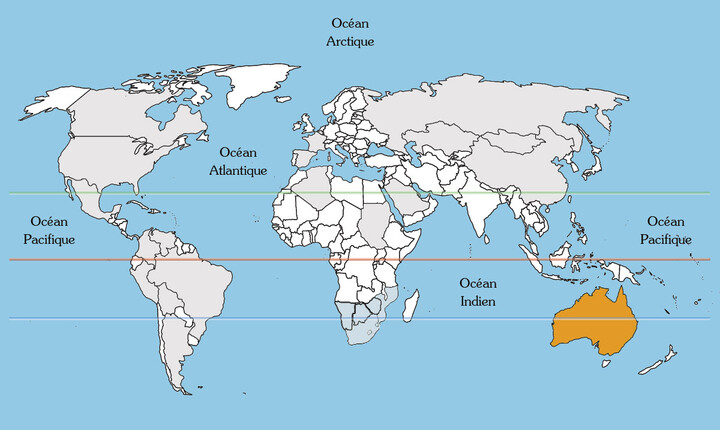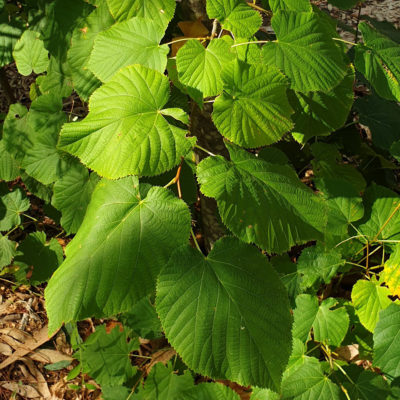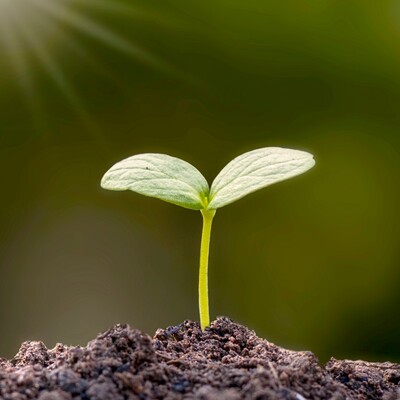Manuka / Tea tree
Presentation
A natural remedy with exceptional properties
Although we love food here at our four-star campsite Les Jardins de La Pascalinette®, we also love nature and everything it offers us in terms of natural healing. And this evergreen shrub, part of the Myrtaceae family, is famed worldwide for its unique medicinal properties!
Manuka is particularly renowned for its honey, produced from the nectar of its flowers. The honey contains a compound called methylglyoxal (MG), with exceptional antimicrobial qualities. Research has shown that Manuka honey can be effective in treating a variety of skin conditions, such as wounds, burns, and infections.
In addition to its honey, the essential oil extracted from the leaves of the Manuka tea tree is increasingly prized worldwide for its antiseptic, antibacterial and anti-inflammatory properties. It is often used in aromatherapy to relieve respiratory and skin conditions, and to stimulate the immune system.
Furthermore, studies have demonstrated the effectiveness of Manuka in the treatment of certain oral conditions, such as gingivitis and bad breath. Even though they have some common characteristics, this oil is not to be confused with tea tree essential oil (melaleuca alternifolia).
At the heart of our ecological commitment
However, the growing demand for products derived from the Manuka tree has raised some environmental sustainability concerns. It is essential to preserve the ecosystems in which this tree grows in order to guarantee its long-term availability. As part of its eco-friendly approach, Les Jardins de La Pascalinette ® nature campsite strives to protect this precious plant species as best it can.
The Manuka tea tree offers a range of both internal and external health benefits, widely used, in particular, in Māori medicine. It is a genuine natural treasure to be admired and preserved.
Where to find it at the campsite
You’ll find our manuka tree in Allée des Bormettes (nr. 12 on the botanical footpath plan).
Identity
| Latin name : | Leptospermum scoparium |
|---|---|
| Family : | myrtaceae |
| Genus : | leptospermum |
| Species : | scoparium |
| Color : | White or pink flowers |
| Origin : | Australia and New Zealand |
| Foliage : | Evergreen |
| Port : | Perennial |
| Height : | Up to 3 m |
| Flowering : | May to July |
| Location : | Allée des Bormettes |
Did you know?
Manuka honey is renowned for its many healing properties (in particular for burns and ulcers).

